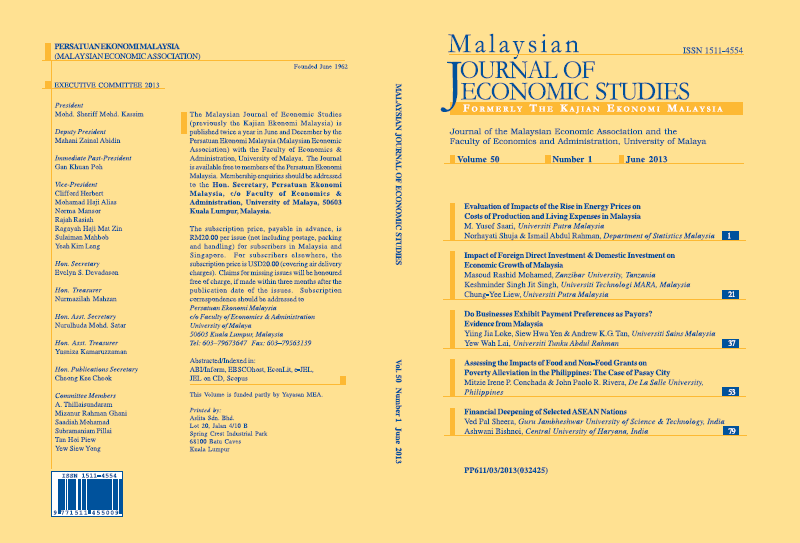Assessing the Impacts of Food and Non-Food Grants on Poverty Alleviation in the Philippines: The Case of Pasay City
Keywords:
Food grant, generalised method of moments, maximum likelihood estimation, non-food grant, Pasay city, poverty, welfareAbstract
There is ongoing debate as to the effectiveness of food grant versus a non-food grant. This study aims to determine the programme that is more effective in addressing welfare issues such as health, nutrition, and education of the family members who are most vulnerable to economic shocks in Pasay city. Two programmes were compared and evaluated namely food grant and the non-food grant as represented by various programmes. The effects of these programmes on the target of enhancing retention rate through active school participation are determined using the Generalised Method of Moments (GMM). On the other hand, the effects of these programmes on the target of reducing the probability that a household will experience state hunger are determined using Maximum Likelihood Estimation (MLE). The statistical significance of the estimates allows this study to determine the effectiveness of such programmes as well as to verify which between the food grant and non-food grant is better in alleviating the state of poverty. Results showed that nonfood programmes are more effective than a food programme based on the regressions for Pasay City.

